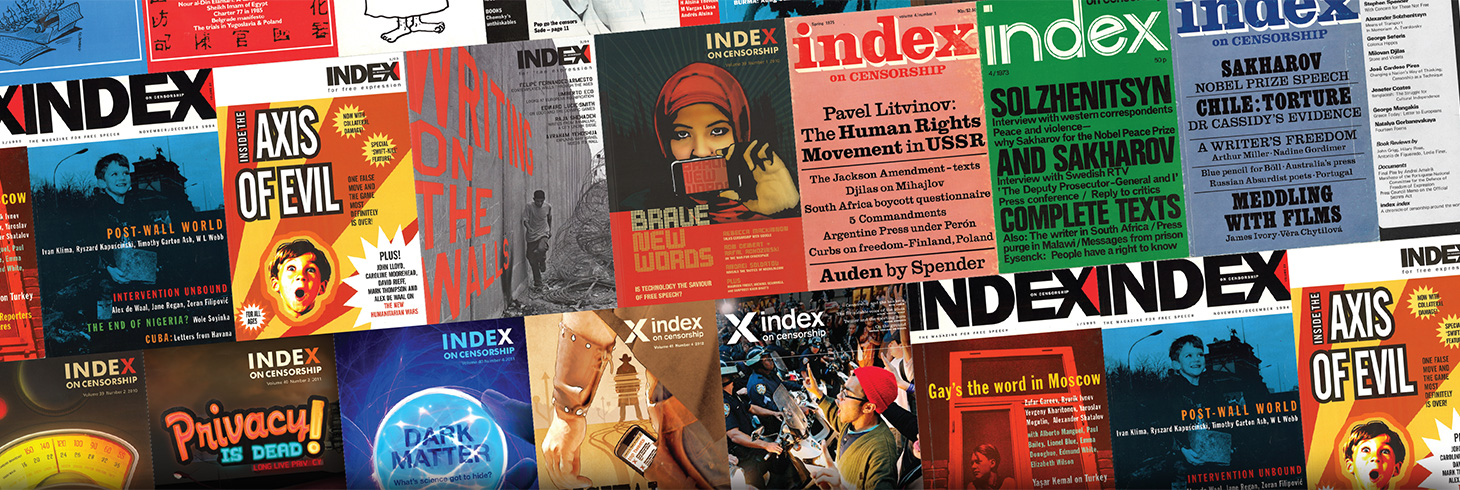Talk radio is the right-wing’s battleground for the soul of the USA, but Joe Queenan isn’t listening
CATEGORY: Magazine
Libel: Thai travails
Tesco has dropped its libel case against Thai columnist Kamol Kamoltrakul (pictured). But the libel laws in Thailand are still hostile to journalists, as Sinfah Tunsarawuth explained in Index on Censorship’s “Big Chill” issue
Aung San Suu Kyi: Freedom from fear
Burmese pro-democracy campaigner Aung San Suu Kyi marks her 65th birthday under house arrest today. Here, we republish an article she wrote in honour of her father Aung San, which first appeared in the January 1992 edition of Index on Censorship magazine.
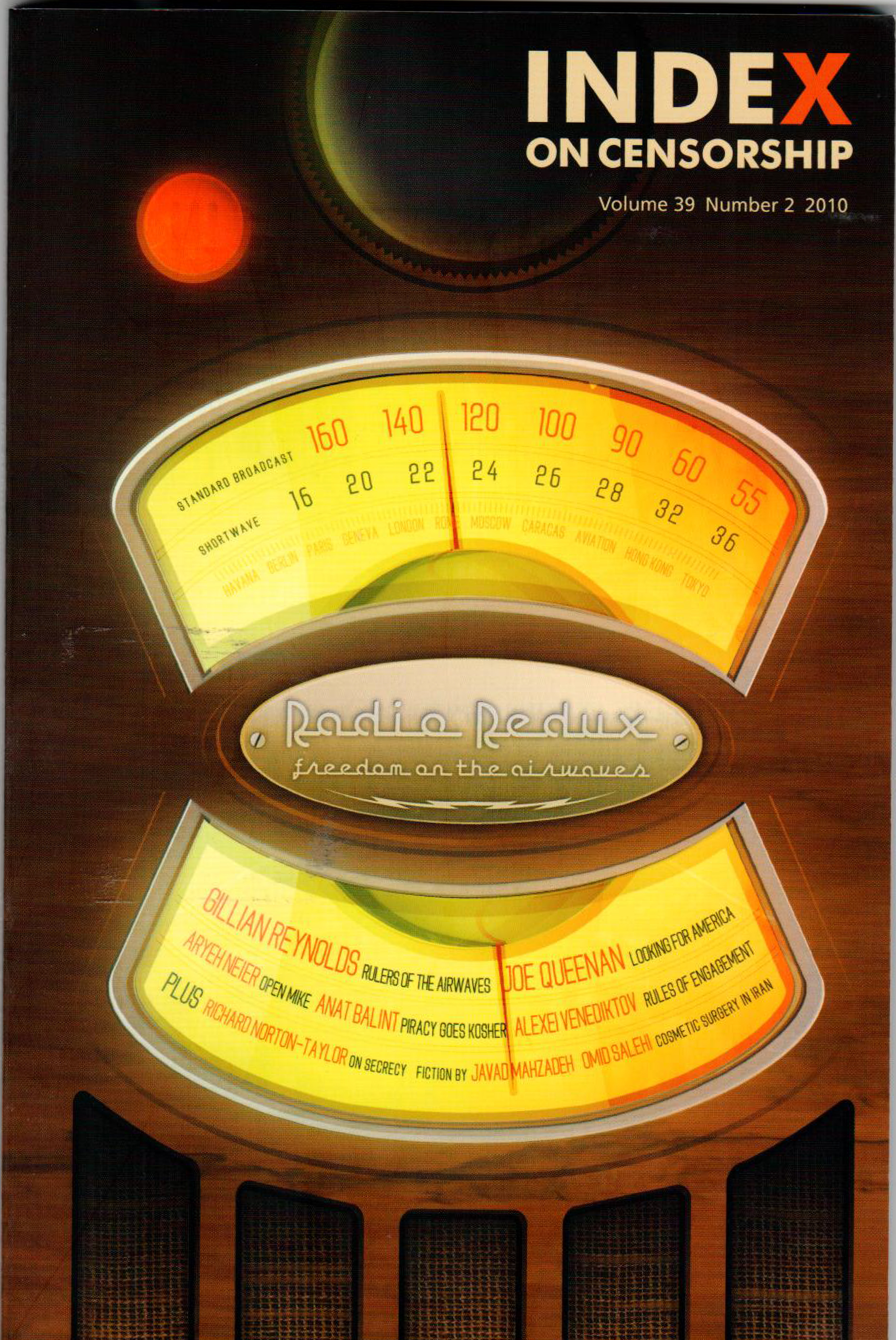
Radio redux
From unsung heroes to shock jocks, Index looks at free speech on the airwaves
From the archive: Revolution at the crossroads
Index on Censorship contributor
Fred Halliday has died at the age of 64. Here, we republish a typically insightful Halliday article on the Islamic Republic of Iran from 2001
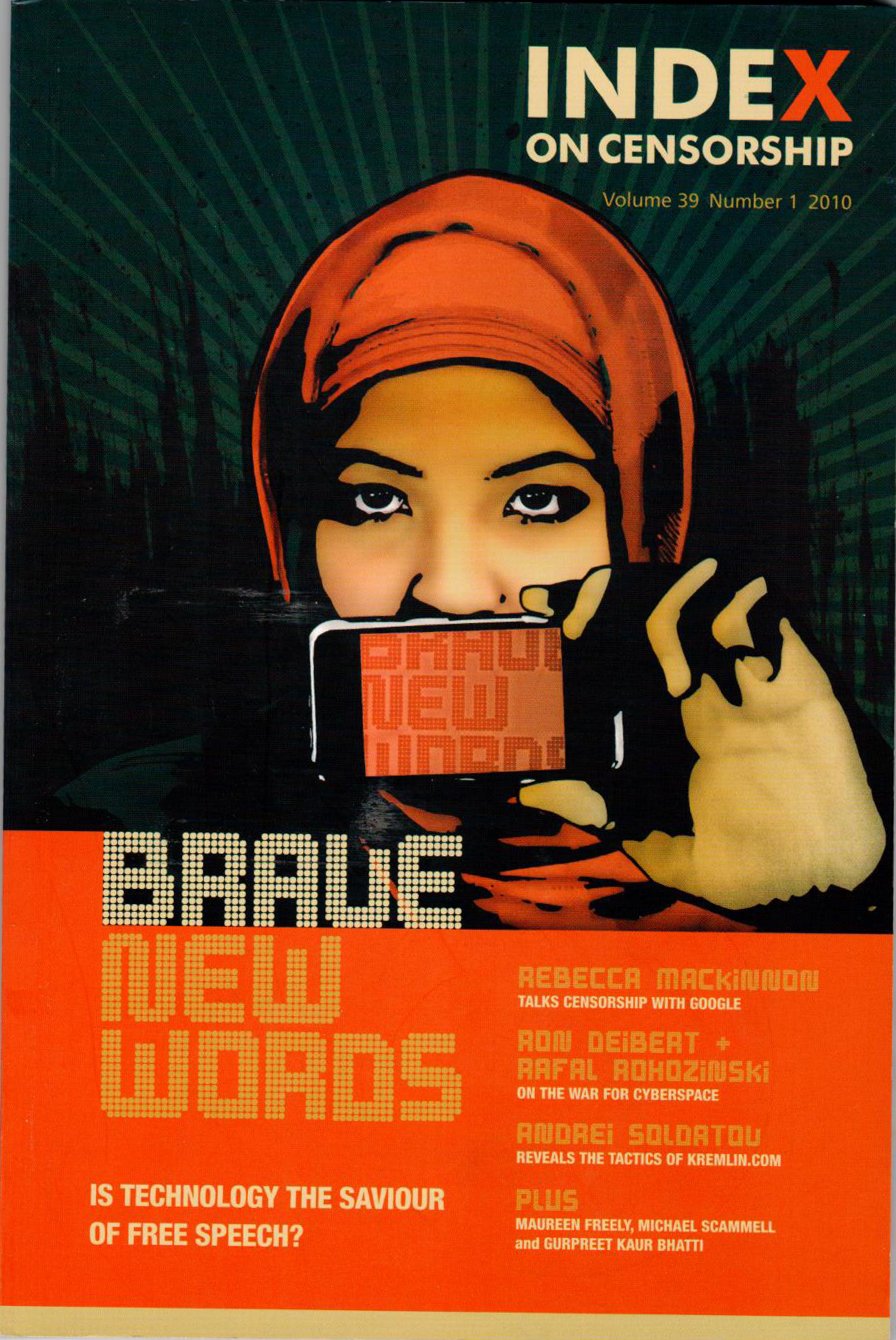
Brave new words
Our special report explores how the internet not only makes it possible for authoritarian regimes to monitor citizens’ activities as never before, but also makes censorship acceptable, and even respectable, in democracies.

Impunity: stopping the killers
Impunity is an urgent issue facing press freedom campaigners. Joel Simon of the Committee to Protect Journalists outlines a roadmap for action
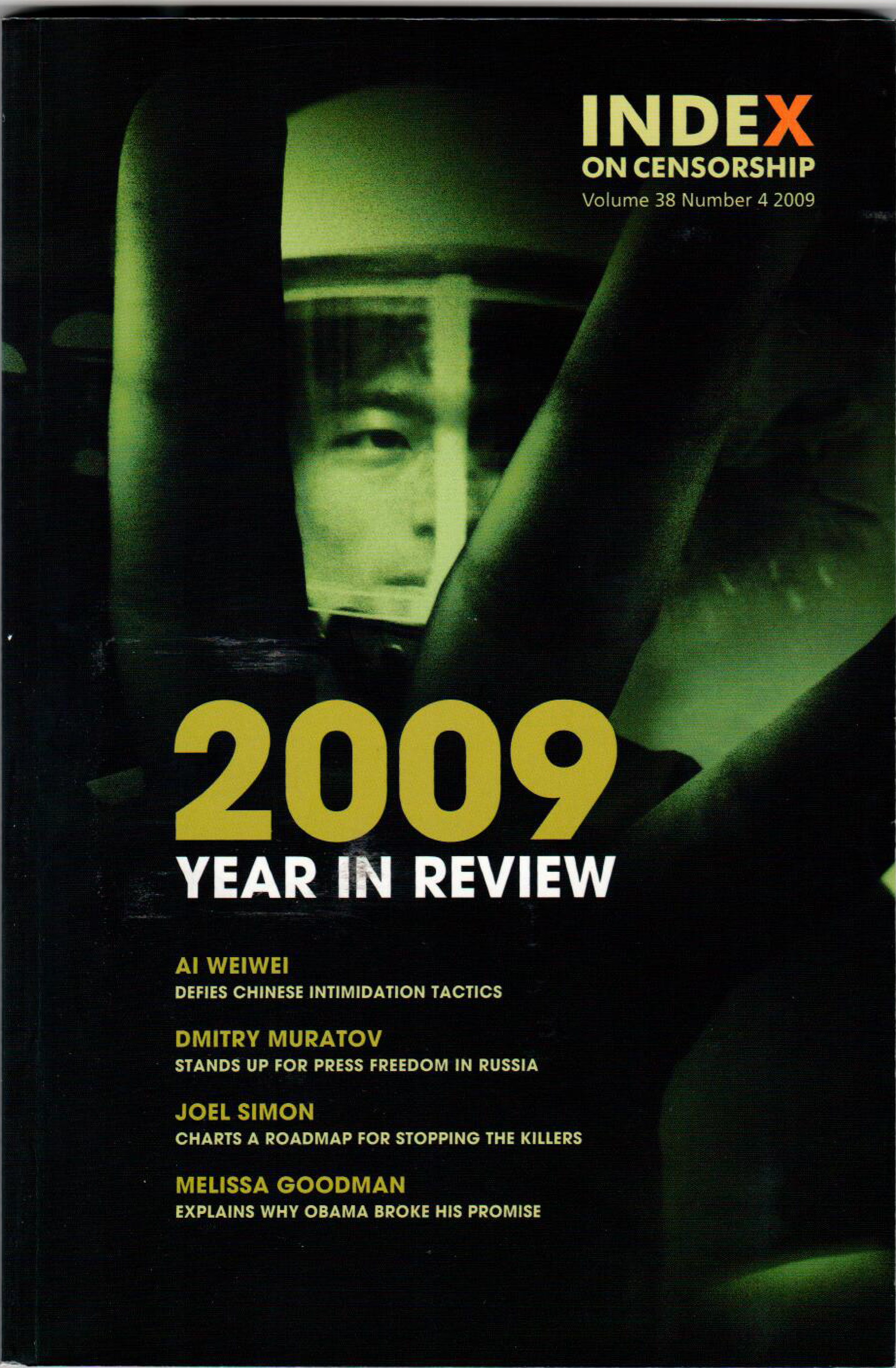
2009: Year in review
Index on Censorship looks back on the highs and lows of the year. Editors, journalists, artists and scholars on the frontline review the challenges for free speech around the world.
The Velvet Revolutionary
On 17 November 1989, the police crushed a peaceful student demonstration in Prague. The crackdown led to national protests, culminating in a general strike. Within 11 days, the mass demonstrations had overthrown the communist regime. Václav Havel was elected president on 29 December. Jan Bubeník became the youngest politician in the new government. He spoke to Jo Glanville
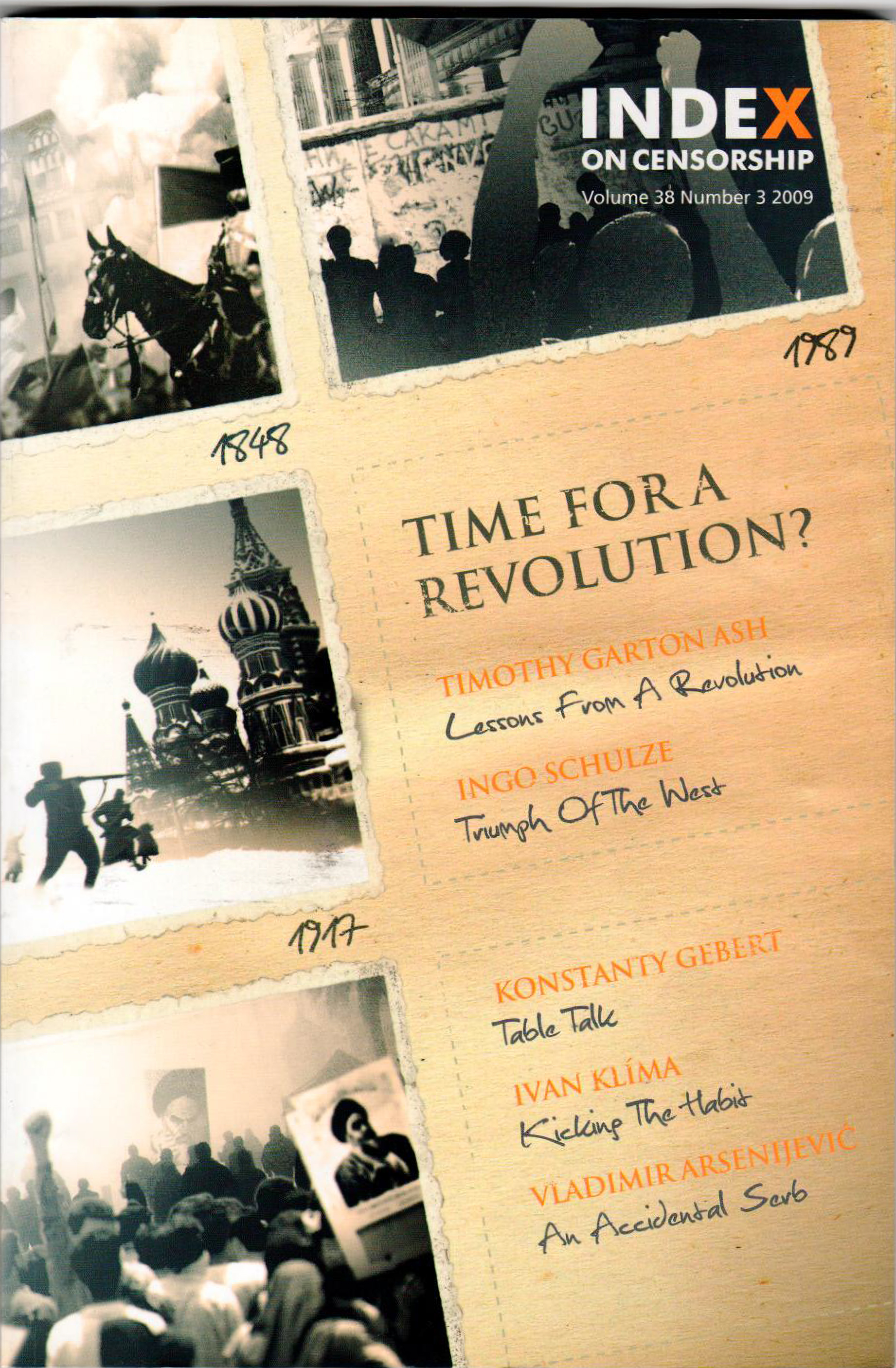
Time for a revolution?
Is it time for another revolution? Index on Censorship examines the legacy of the fall of the Berlin Wall.
A quarterly journal set up in 1972, Index on Censorship magazine has published oppressed writers and refused to be silenced across hundreds of issues.
The brainchild of the poet Stephen Spender, and translator Michael Scammell, the magazine’s very first issue included a never-before-published poem, written while serving a sentence in a labour camp, by the Soviet dissident Aleksandr Solzhenitsyn, who went on to win a Nobel prize later that year.
The magazine continued to be a thorn in the side of Soviet censors, but its scope was far wider. From the beginning, Index declared its mission to stand up for free expression as a fundamental human right for people everywhere – it was particularly vocal in its coverage of the oppressive military regimes of southern Europe and Latin America but was also clear that freedom of expression was not only a problem in faraway dictatorships. The winter 1979 issue, for example, reported on a controversy in the United States in which the Public Broadcasting Service had heavily edited a documentary about racism in Britain and then gone to court attempting to prevent screenings of the original version. Learn more.

